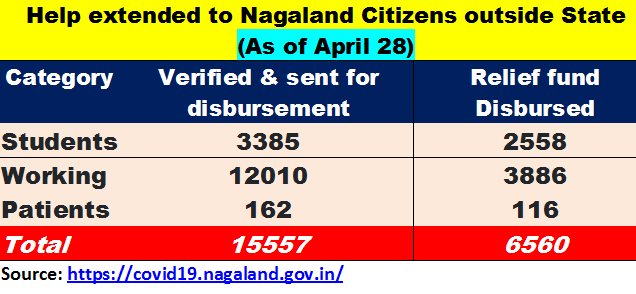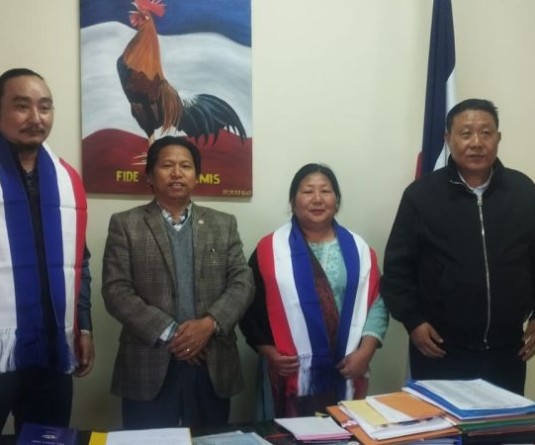Not a case of typos, says govt on credit-debit fiasco

‘Slight misunderstanding’ but process of transferring monetary aid going ‘smoothly,’ maintains State’s Nodal Officer
Morung Express News
Dimapur | April 28
The Nagaland state government landed itself in another embarrassing situation, all thanks to erroneous data entry. This time, it was in connection to the monetary benefits (direct to account transfer) extended by the state government to working professionals stranded outside Nagaland.
Late on April 27, social media fluttered with beneficiaries posting about their bank accounts getting credited with Rs 4000 only to be debited later.
With no official explanation forthcoming from the government authorities, theories abounded as to what must have caused it. The theories ranged from link failure, hacking to even misappropriation.
It was only on April 28 that the State Bank of India's Nagaland Secretariat Branch, Kohima issued a terse message explaining the cause of the faux pas.
Issued by the Branch Manager, the message explained that it was a case of "same accounts with different names." But it did not explain how.
"We have consulted the State Government on this issue and working on the list. The verified beneficiary list from the State Government will be credited on 28/04/2020," was all it said.
Other SBI officials said that there was erroneous data entry in the beneficiary list that resulted in some of the beneficiaries being credited more than once.
"The list of beneficiaries, alongwith their account numbers was provided by the government to the bank," a senior bank official at the SBI Regional Branch Office said.
While stating that the funds were transferred to the accounts as given in the list via the bank's "bulk transfer software," the official added that it was later discovered, "multiple credits had gone to single accounts."
According to the official, the error was tracked to the government's beneficiary list, which had some account numbers attributed to multiple different names.
"Due to some typos or clerical mistakes, different names were found entered against the same account number. Because of that multiple credits have gone into the same account."
The official said that the erroneous credits were being reversed.
Not 'typos or clerical errors' as claimed: govt
Reacting to the report, the Nodal Officer for Nagaland citizens stranded in other states— Shanavas C, who is also the Principal Director, Department of School Education, said that it was not a case of “typos or clerical errors” as claimed.
“It was a slight misunderstanding by the bank. What happened yesterday was that when they saw 2-3 transactions were going to the same accounts, it roused suspicion (of one person applying multiple times) and that is how the credit-debit happened,” he said.
As to what caused the confusion, he explained that there were instances of 2-3 beneficiaries registering the same bank account in the iamstranded.gov.in portal.
“Say for instance 2-3 people living in the same house but only one of them had a working bank account. So, they decided to register only one bank account to avail the aid,” Shanavas said.
He maintained that while compiling the beneficiary-list, such cases were verified and the list forwarded to the bank for transferring the money to the listed accounts. He added that the bank’s confusion was cleared in the morning today and the bank subsequently issued a clarification. “We issued a written clarification to the bank that it should go ahead with the remittances as per the list prepared by the government. They have already reversed the debited amount.”
Meanwhile, Shanavas informed that the process of transferring the monetary aid from the government was going on smoothly. He said that some 15,500 beneficiaries have been verified, out which remittances have been made to around 10,000 and it would take 1-2 days to transfer the benefits to the remaining beneficiaries.





